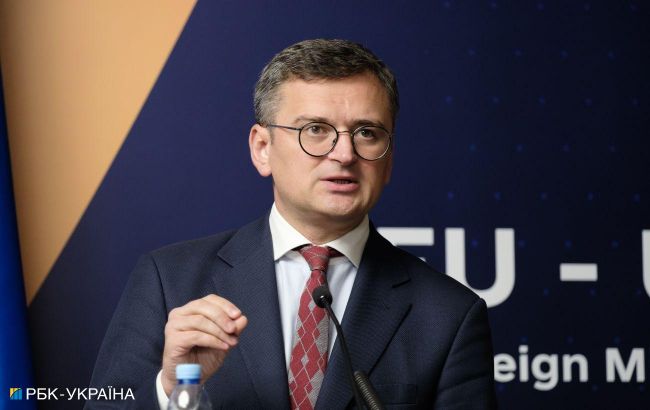Inside Ukraine's diplomatic triumph: Minister shares details of 'most challenging decision'
 Minister of Foreign Affairs of Ukraine, Dmytro Kuleba (Photo: Vitalii Nosach, RBC-Ukraine)
Minister of Foreign Affairs of Ukraine, Dmytro Kuleba (Photo: Vitalii Nosach, RBC-Ukraine)
The decision-making process regarding the opening of accession talks with the European Union was one of the most challenging tasks for the Ukrainian Minister of Foreign Affairs, Dmytro Kuleba, according to his statement during an interview with journalist Vadym Karpiak.
"This decision was the most challenging (referring to the start of Ukraine's accession negotiations with the EU - Ed.), one of the most challenging in my life. Indeed, all the factors came together as if by magic," states Kuleba.
He points out that Ukraine needed to work directly with the Hungarians. A part of this effort was the first meeting between the Ukrainian minister and his Hungarian colleague Péter Szijjártó since the start of the full-scale war.
Kuleba adds that it was also necessary to work with European leaders and ministers so that "they were geared not just for a fight but for victory." This included President Volodymyr Zelenskyy.
Moreover, pinpoint work was required with certain European officials who influenced Hungarian Prime Minister Viktor Orbán, adds the head of Ukrainian diplomacy. Their task was not merely to engage in discussions but to exert influence.
"All of this had to converge at one point, at one moment. Everyone had to demonstrate character, principled stances, and push this issue through. We pushed it through. And the President's (Zelenskyy's - Ed.) address was one of the shortest but most powerful speeches made by the president since the start of the war," the minister adds.
Negotiations on Ukraine's EU accession
Yesterday, on December 14, the leaders of the European Union countries during the summit approved the commencement of negotiations for Ukraine's accession to the bloc. This happened despite Hungary threatening to veto the initiative.
According to Western media, Hungarian Prime Minister Viktor Orbán left the room when the summit discussed the issue of opening accession negotiations with Ukraine.
Later, it was revealed that such an exit of the head of the Hungarian government was allegedly suggested by German Chancellor Olaf Scholz.
For more details on what awaits Ukraine after the decision on negotiations, read the material by RBC-Ukraine.

